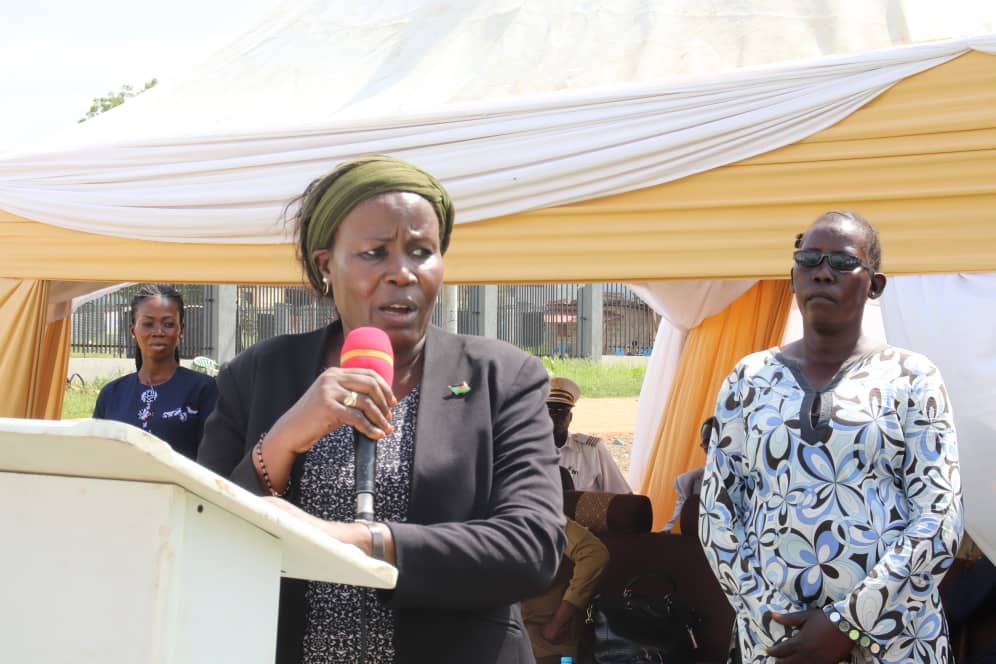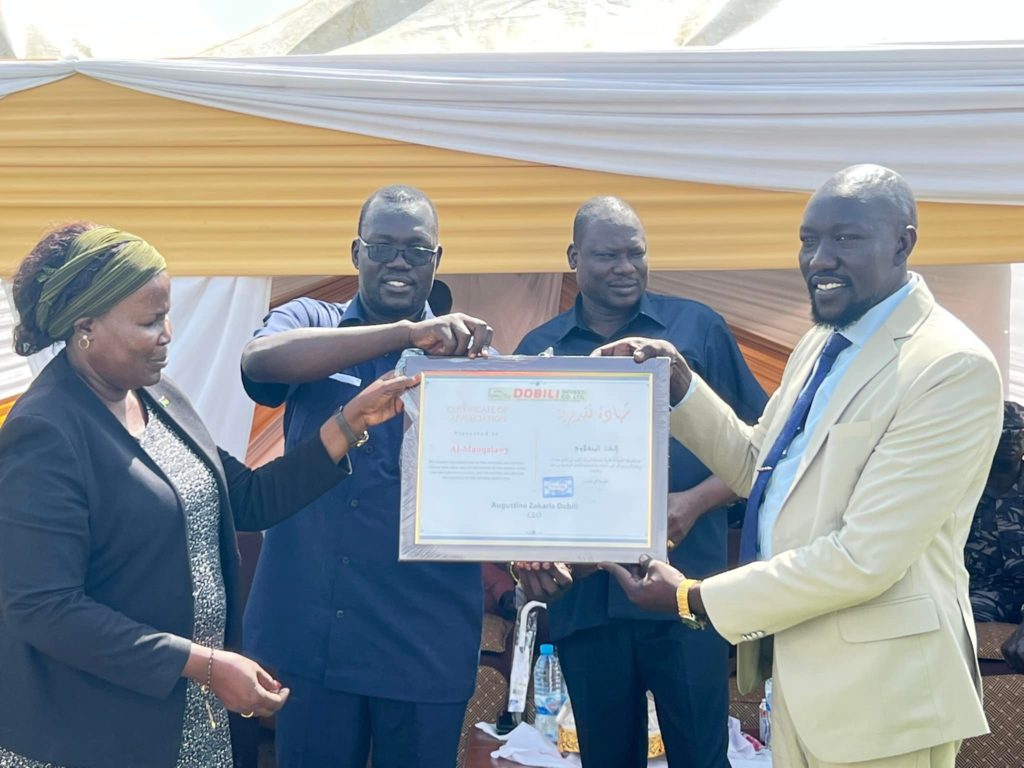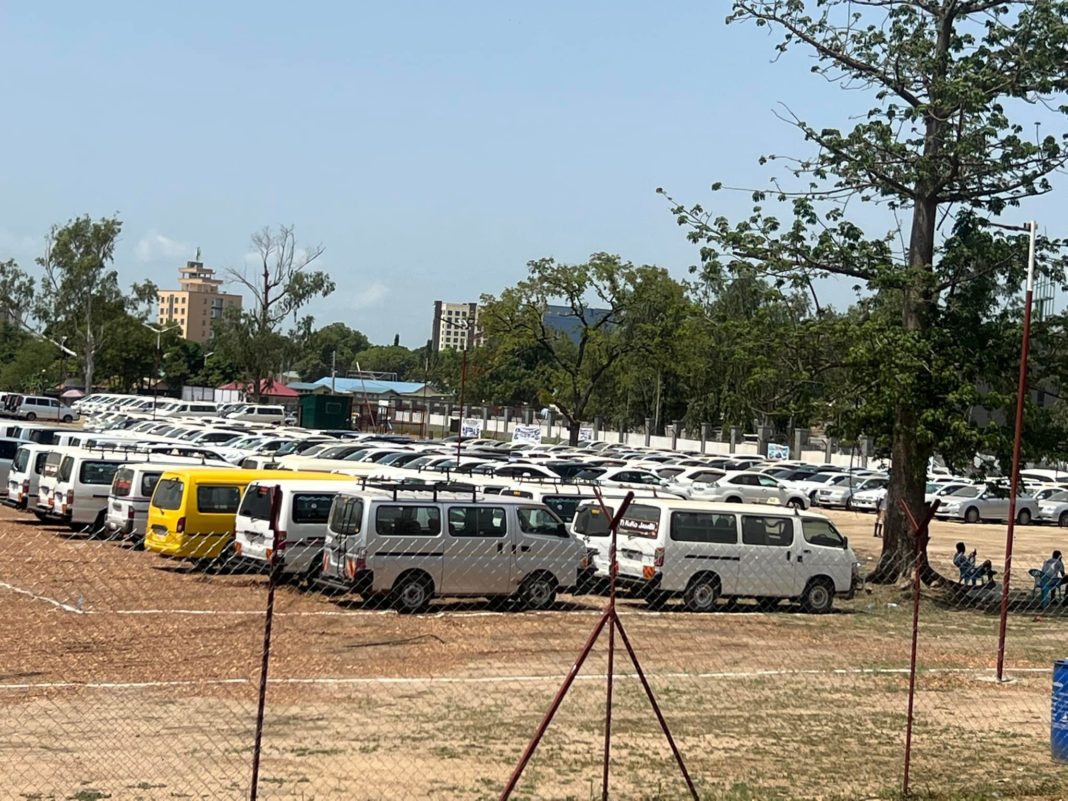As the city’s first car bond opens, comedian Wokil looks at the crowd, smiles, grabs the mic, and sends the crowd into a frenzy. “A friend of mine – a lieutenant – married the only female major General in the army, but they never had a child for four years. When asked what the matter was up his trousers, he rudely replied, ‘How can I perform, if the Major General has not given me orders to perform. I’m just a lieutenant.”.
Not to be outdone in sending the crowd roaring, Nejuwa Juma, Central Equatoria’ state minister for Health, representing the governor, remarks that she thought she had been given car keys only to discover that it is a placard .”I was confident of going home with a car when you people announced that it is time for gifts, for (car gifts) is the only thing associated with car dealers.”
They are not the only ones keeping it light. Juba City Mayor His Worship Michael Allah Jabu takes on deputy Hon Thiik Thiik Mayardit, showcasing their respective traditional-dances to renowned singer Emmanuel Kembe’s pop music, before complaining about how old his car looks compared to the vehicles in the bond. “A friend just whispered to me that this is called intelligent begging. Look at my siren car, it’s not worth being parked next to your new cars. It’s been in use for nearly a decade”
As if on cue from a World Bank panel discussion two days prior, the June 17 opening ceremony for Juba’s first car bond – a full feast at which a big bull was slaughtered in front of the gathered guests – took comedy and laughter to a whole new level. A brain child of Al-Mangalawi company, in partnership with the city council, the bond is aimed at decongesting the streets of the city, especially Malakia and Hai Malakal neighborhoods, where cars are lined up on streets for sale. Located adjacent to Juba Teaching Hospital, the bond can accommodate up to 2000 cars and has tens of offices for auto dealers. “Currently, we are receiving an average of 15-20 cars every day with plans to expand it to a place with a bigger capacity in the future”, says Al-Mangalawi CEO Emmanuel Sebit.

To construct the bond, the city evicted families of squatters. The squatters had resisted displacement, urging that some of their loved ones are buried in the area.
“This place has been used as a safe haven by criminals, but with this bond, it will become a thing of the past. I urge all of you to support the Authority of Juba City Council to deliver the services to the people since our motto is to keep Juba Clean, Green, Save and Beautiful”, the Mayor says. “If your home is noisy, disorganized and inconveniencing the residents of the city, we will storm it because we will consider you an enemy to the city.”
Suzan Taban is the deputy head of Juba Block Council. “We will make sure no vehicles are sold or parked for sale on the roads of the city. We are coming for those who will not abide by this,” she says.

SAFE, BUT NO SALES
The bond is open to every salesperson. Registration fee per car is only $0.8USD. But will car prices fall? No, says one salesman, prices will instead increase given an increase in tax rate to 100% the value of the car.
In the context of the current economic downturn, dealers are discovering that it is one thing to have a bond, another to have buyers. The following day, Muzofuli Patrick, 26, is here to sell a car sent to him by his Ugandan friend. A tap on the window of the grey Toyota Premio startles him from his nap. “Sorry boss,” he swings into action, salesman style, showing off the car’s interior. “Welcome, sir. You can have a look,” he adds, opening the door, stepping out of the car, and dusting the rear window. “If business picks up in this place, I will soon start importing my own because there is a safety guarantee here,” he adds. “As things stand, it’s boring.”
The bond comes with constraints. Before, Muzofuli could drive home for lunch, visit a girlfriend, and go partying all while selling the car; at the bond, once one registers the car, one parks it there, until a sale is actualized.
Juma Wuor Deng of M-T Auto Company is among the beneficiaries of the bond. “Once a car is in the bond, it never gets out of the bond, unless it is going for service, with permission in case of a technical repair. After selling a car, the owner pays an average of $50-$100USD, depending on the model of the car,” says Deng.
“We are proud to be among the founding members of this bond. Now we can sleep in peace knowing that our cars are in a safe place, unlike in the past when we would sleep with a lot of anxiety over the safety of our investments being parked on the road sides.”




